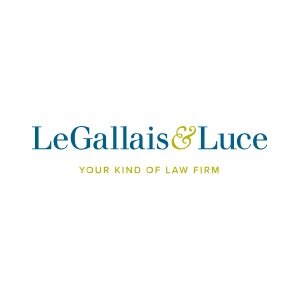Best Water Law Lawyers in Jersey
Share your needs with us, get contacted by law firms.
Free. Takes 2 min.
Or refine your search by selecting a city:
List of the best lawyers in Jersey
About Water Law in Jersey
Water Law in Jersey governs the use, management, and protection of water resources within the island. It includes regulations relating to water supply, water quality, wastewater management, pollution, public access, and the protection of aquatic environments. The legal framework aims to balance individuals' access rights and land use with the collective need to safeguard water for current and future generations. Because Jersey is a small island with finite natural resources, water law is a crucial component of both environmental policy and land management.
Why You May Need a Lawyer
There are several situations where seeking legal advice on Water Law may be necessary in Jersey. Common scenarios include:
- Disputes over water rights or access to streams, rivers, or other water sources on private or public land.
- Legal issues arising from water pollution and the resulting civil or criminal liability.
- Compliance with planning permissions involving water use or drainage for new constructions or developments.
- Challenges involving groundwater abstraction for agriculture or business, including drilling wells or boreholes.
- Concerns relating to public health and environmental regulations on wastewater and sewage disposal.
- Managing agricultural runoff, industrial discharges, or construction site water management.
- Protecting property from flooding or seeking redress for damage resulting from inadequate water management.
- Navigating legislation if you are a water service provider or a business reliant on significant water usage.
Expert legal guidance helps individuals and organizations navigate complex regulations, seek permissions, and resolve disputes.
Local Laws Overview
Jersey has a unique legal system that incorporates both customary law and modern statutes. The key pieces of legislation relevant to Water Law include:
- Water Pollution (Jersey) Law 2000: This law regulates the disposal of substances that can pollute water and sets out offences and penalties for polluters. It also establishes permitting systems for activities likely to impact water quality.
- Water (Jersey) Law 1972: Governs the supply of water to properties and the powers of water companies and the States of Jersey. It sets standards for public water supply, quality, and infrastructure development.
- Planning and Building (Jersey) Law 2002: Controls land use, including water management features like drainage, wastewater operations, and flood risks in new developments.
- Drainage (Jersey) Law 2005: Provides the legal structure for managing public and private drainage systems and the prevention of water-related nuisances.
- The Reservoirs (Jersey) Law 1996: Governs the construction, inspection, and maintenance of reservoirs, focusing on safety and environmental impacts.
There are also local ordinances and administrative practices that complement these laws, particularly in relation to environmental management, conservation zones, and public health concerns.
Frequently Asked Questions
What counts as water pollution under Jersey law?
Water pollution includes the introduction of any material into watercourses, groundwater, or coastal waters that may harm human health, aquatic life, or water quality. This can include sewage, chemicals, waste, or even silt from construction sites.
Do I need permission to extract water from a stream or borehole?
Yes, most extractions are regulated and require a license from the States of Jersey. Unauthorized abstraction can result in penalties.
What should I do if my property is affected by flooding?
You should report flooding to the States of Jersey's relevant department and seek legal advice, especially if the flooding is caused by poor management or development work nearby.
Can I discharge wastewater from my property into a stream?
Discharging wastewater directly into a watercourse is strictly regulated and generally prohibited unless you have specific consent. Even treated effluent must meet stringent environmental standards.
How are water disputes between neighbours resolved?
Disputes over water rights, such as access and usage, are typically resolved using a combination of customary law, statutory provisions, and court orders if informal resolution is not possible.
Who regulates public water supply in Jersey?
Jersey Water is the primary water utility provider. Oversight and regulatory functions are also provided by the States of Jersey, specifically through environmental and public health departments.
Is rainwater harvesting allowed for private use?
Rainwater harvesting for domestic use is generally encouraged, though storage systems must comply with local building regulations and not contaminate public supplies.
What are the penalties for polluting water bodies?
Penalties can include fines, enforcement notices, requirements to remediate the pollution, and, in severe cases, criminal prosecution.
Do building developments need to consider water law?
Yes, all new developments must assess drainage, flood risk, and water usage. Planning permissions will often include conditions specifically related to water management.
How can I find out if my planned use of water is legal?
Consult with a legal professional specializing in Water Law and contact relevant government departments before starting any activity involving abstraction, discharge, or construction near water sources.
Additional Resources
If you seek advice or want more information about Water Law in Jersey, the following organizations and bodies can be useful:
- States of Jersey Department for the Environment: Oversees water management, environmental protection, and licensing issues.
- Jersey Water: The local water utility provider. They provide guidance on supply, quality, and new connections.
- Parish Halls: Local authorities may have specific bylaws relating to water, drainage, and flooding.
- Jersey Legal Information Board: Offers public access to statutes and relevant legal materials.
- Law Society of Jersey: Directory of qualified lawyers with Water Law expertise.
- Environmental groups and NGOs: Provide advocacy and guidance for environmental protection and water conservation.
Next Steps
If you believe you need legal assistance with a Water Law issue in Jersey, consider the following steps:
- Gather all relevant information and documentation concerning your issue, such as correspondence, permits, plans, and photos.
- Contact a qualified legal professional or law firm that specializes in environmental or property law and has experience with water-related matters in Jersey.
- Prepare questions and clarify your objectives before your initial consultation to make the best use of your time with your legal advisor.
- Engage with relevant government departments early if your matter involves licensing, permissions, or reported pollution.
- Stay informed about your rights and responsibilities by referring to the latest legal resources and guidance documents provided by official bodies.
Timely legal guidance can help you navigate the complexity of Water Law in Jersey, resolve disputes, ensure compliance, and protect your interests.
Lawzana helps you find the best lawyers and law firms in Jersey through a curated and pre-screened list of qualified legal professionals. Our platform offers rankings and detailed profiles of attorneys and law firms, allowing you to compare based on practice areas, including Water Law, experience, and client feedback.
Each profile includes a description of the firm's areas of practice, client reviews, team members and partners, year of establishment, spoken languages, office locations, contact information, social media presence, and any published articles or resources. Most firms on our platform speak English and are experienced in both local and international legal matters.
Get a quote from top-rated law firms in Jersey — quickly, securely, and without unnecessary hassle.
Disclaimer:
The information provided on this page is for general informational purposes only and does not constitute legal advice. While we strive to ensure the accuracy and relevance of the content, legal information may change over time, and interpretations of the law can vary. You should always consult with a qualified legal professional for advice specific to your situation.
We disclaim all liability for actions taken or not taken based on the content of this page. If you believe any information is incorrect or outdated, please contact us, and we will review and update it where appropriate.
Browse water law law firms by city in Jersey
Refine your search by selecting a city.










